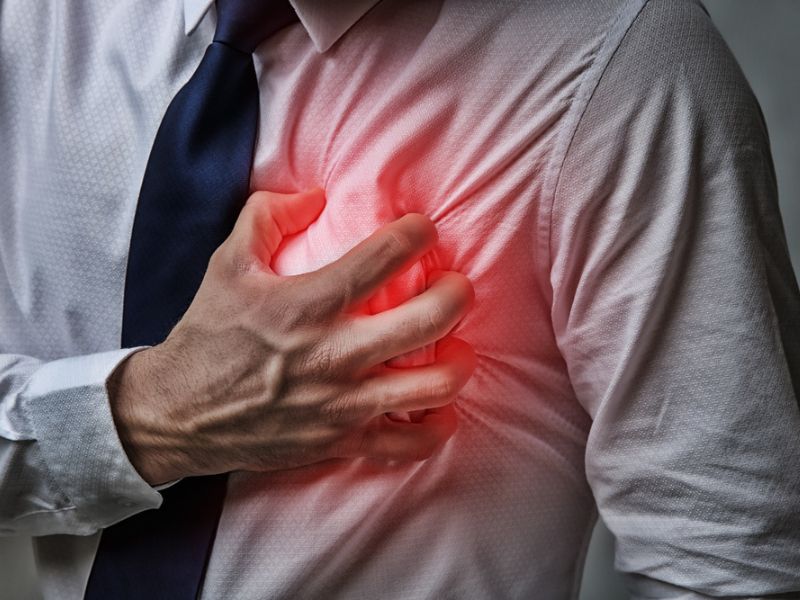In most cases, people mistake a heart attack for a cardiac arrest. However, it isn’t true. A basic understanding of what happens in cardiac arrest and heart attacks is the first step towards understanding the difference.
Heart Attacks: What Are They?
Heart muscles require an oxygen-rich blood supply to function correctly. Coronary arteries provide blood to the heart. A blood clot usually causes this. Blockages block coronary arteries, resulting in a heart attack. Heart muscle can die from a backup if not resolved quickly.

Image Credit: Shutterstock/Africa Studio
How Does A Cardiac Arrest Occur?
There is a difference between a cardiac arrest and a heart attack. A cardiac arrest occurs when the heart stops beating, whereas a heart attack occurs when the heart continues to beat even when the blood supply is disrupted.
Heart Attack And Cardiac Arrest Symptoms
Heart attacks and cardiac arrests have different physiological mechanisms and symptoms.
Heart attack symptoms include:
- Chest pain
- Shortness of breath
- Coughing
- Wheezing
- Anxiety
- Light-headedness or dizziness
- Sweating

Image Credit: Shutterstock/P.KASIPAT
Cardiac arrest symptoms include:
- Loss of consciousness/responsiveness
- Having trouble breathing
- Deficiency of pulse
A heart attack can also cause cardiac arrest. According to the British Heart Foundation, heart attacks are the leading cause of cardiac arrests in the UK. The heart attack itself cuts off the blood supply to the heart muscle. A cardiac arrest may occur if a large enough portion of the heart is affected.
Conclusion
Heart attacks and cardiac arrests differ in terms of severity. Heart attacks occur when blood flow to part of the heart stops, leading to a section of the heart muscle dying. On the other hand, cardiac arrests occur when the heart stops beating.